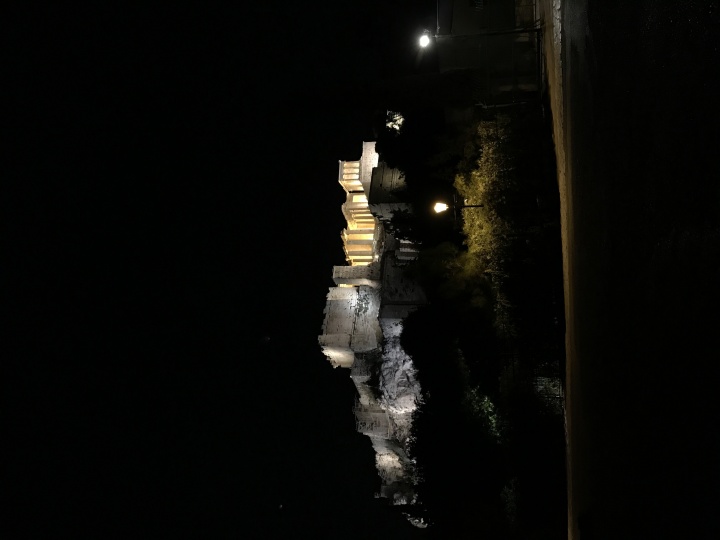Dear Readers
Winter 2017

Dear Readers,
For the Feast of Tabernacles this year I had the incredible blessing of going to Greece. As one of the speakers noted during the trip, I’ll never read the Bible in quite the same way again. Standing at Cenchrea, the same harbor where Paul set off in a ship to Syria (Acts 18:18), and exploring Crete, whose people are referenced in relation to Paul and Titus (Acts 27, Titus 1), are experiences I hope I never forget.
Perhaps the most intense one was standing on Mars Hill. It was here that Paul proclaimed the true God to the Greeks, who believed passionately in their Pantheon of gods (like Zeus, Poseidon and Athena). Climbing up the rocky outcropping of Mars Hill in Athens, I was struck by the view. Nowadays the sprawl of modern Athens lies below the hill. But most noticeable, and surely even more so in biblical times, is the view of the Acropolis (meaning the city’s highest point in Greek). Athens restricts building heights so that even today the Acropolis stands above the rest of the city. On it remain the ruins of an impressive entrance gateway, the Temple of Athena Nike and the Parthenon, along with other ancient temples and buildings.
Even though much was destroyed over time, the ruins that remain are imposing and impressive. I can only imagine what they would have seemed like to the people in Paul’s time, compared to the normal homes and buildings. These temples had to have seemed otherworldly. I could image people in that time easily believing those giant shrines were of the gods.
Yet despite the intense paganism of the day, despite that incredible show of power only a little off in the distance, Paul preached unabashedly about the truth of God, a truth that required the dissolving of any belief or worship of the Greek gods. In fact, it was because of how much idolatry he saw in Athens that he felt he had to speak up (Acts 17:16). To his audience he said, “The God who made the world and everything in it, being Lord of heaven and earth, does not live in temples made by man, nor is he served by human hands, as though he needed anything, since he himself gives to all mankind life and breath and everything” (Acts 17: 24-25, English Standard Version).
Some would argue Athens wasn’t ready for the truth, as I heard from my tour guide in Greece (Acts 17:32-34). Some believed and followed Paul, but he didn’t have the same influence in Athens that he did in Corinth. Still, we have his speech in the Bible as an example of courage. We get to see how he spoke to them.
At the Feast I learned that Paul was highly educated, seen through the complexity of his writing style (2 Peter 3:16). He wants to express difficult things, and he uses every tool available to him. At Mars Hill, he works hard to meet people where they are (Acts 17:22). He takes their foundation, finds a place of commonality, and then builds on it, even using their own poets and writers as reference (Acts 17:28).
Mars Hill (the Areopagus in Greek) was historically the high court in Athens, or a place to discuss the most important cases (http://biblehub.com/topical/a/areopagus.htm). And that’s what Paul is doing. With his life as preparation, he proclaims the most important topic, making every effort to convince them, to bring along his listeners. In the end, only God can call, and every individual has a choice whether to respond. But disciples have a part to play too.
Another speaker at the Feast mentioned that we don’t need to be afraid or intimidated by information, by others’ beliefs, by education, by evil. Paul was not afraid to stand on a rock and declare the truth, even with a giant testament to false gods looming overhead. And we don’t need to be afraid, either. We don't need to fear going out in the world and interacting with people who don't know the truth yet, or being exposed to the fact that others have beliefs different from ours. What’s the point of having a light unless it’s in the midst of darkness?
But, as Paul was, we need to be prepared. I hope this issue of Compass Check is a tiny piece of that preparation to do God’s work with accuracy and boldness.
Your friend,
Kourtney Kovanis, Managing Editor | kourtney.kovanis@gmail.com

